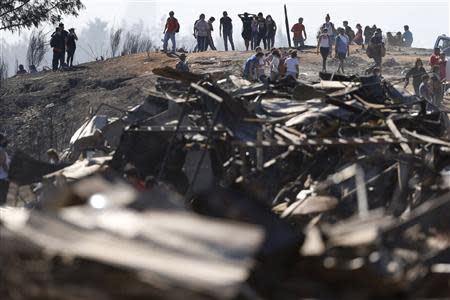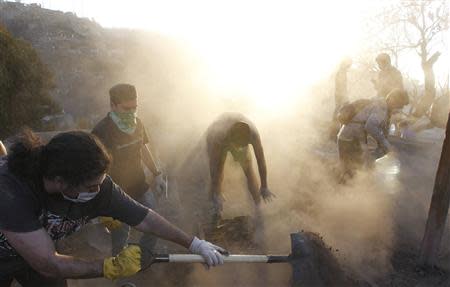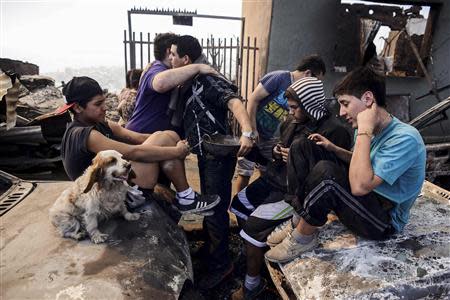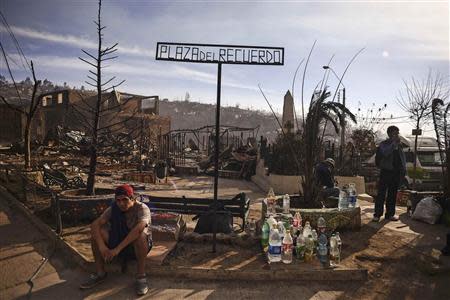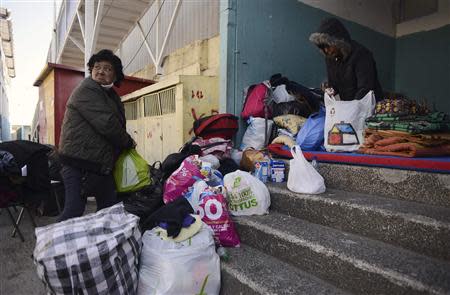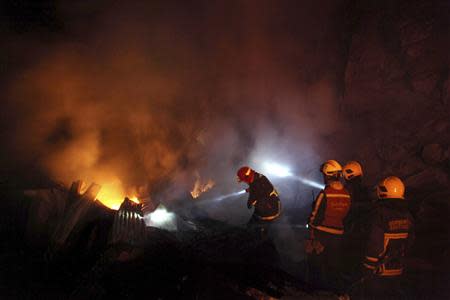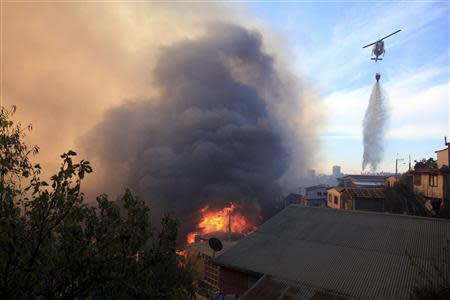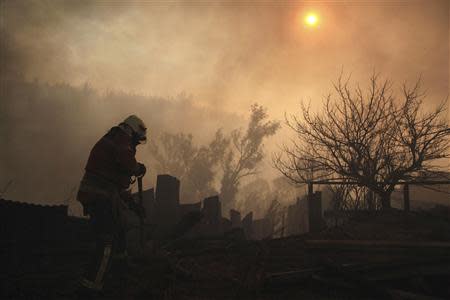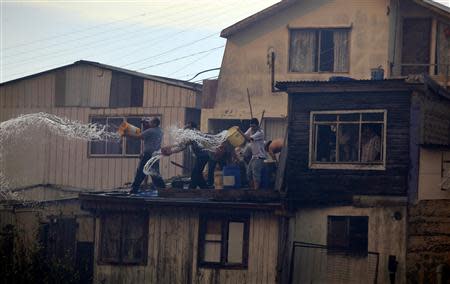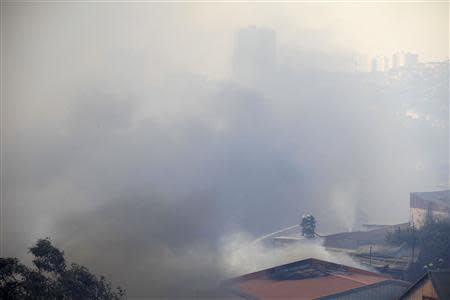As fires die down, Chileans return to ravaged Valparaiso
VALPARAISO/SANTIAGO (Reuters) - Devastated Chileans surveyed damage to their homes in Valparaiso on Monday as a massive fire that burned poor neighborhoods of the coastal city over the weekend began to die down. Firefighters were still battling blazes which killed 13 people, consumed 2,150 acres and burned 2,000 homes. But authorities said the worst was likely over. Fed by high temperatures and strong winds, the flames moved from forest areas at the top of the hilly city on Saturday night and destroyed large swaths of predominantly low-income, wooden houses. Many of the victims in the city, part gritty port and part colorful retreat, were poor people in houses perched high on the city's remote hills. Nearly 1,200 portenos, as Valparaiso residents are called, are sleeping in emergency shelters and need water, food, cleaning products, clothes, school supplies and hygiene products. "People are shattered; their homes are in tatters," said volunteer Carolina Diaz. Chileans are grappling with the Andean country's second big disaster in just two weeks after a massive 8.2 magnitude quake slammed northern Chile on April 1. The crises are big and early tests for President Michelle Bachelet, just a month into her term, which she had expected to be defined by ambitious reform plans. Her center-left government announced on Monday it has asked neighboring Argentina to lend back-up fire fighting capacity as Chile's resources were focused on Valparaiso. "We will make all necessary resources available to tackle this catastrophe," spokesman Alvaro Elizalde said. "The situation is frankly devastating." SPARK UNKNOWN Preliminary investigations indicate there was no foul play behind the fire, Interior Minister Rodrigo Penailillo said on Monday, adding the cause of the blaze remained unclear. Some local media have reported birds electrocuted by power lines may have sparked a fire. A fifth year of drought in central Chile meant fire danger was high. A United Nations report on Sunday warned that governments must act faster to keep global warming in check, or face even more heat waves, floods, droughts and rising sea levels. The spread of the fires was accelerated by a shortage of fire hydrants, firewalls and well-equipped fire fighters in Valparaiso, which regularly faces smaller forest fires. (Reporting by Esteban Medel and Anthony Esposito in Valparaiso and Alexandra Ulmer in Santiago; Writing by Alexandra Ulmer; Editing by Cynthia Osterman)

